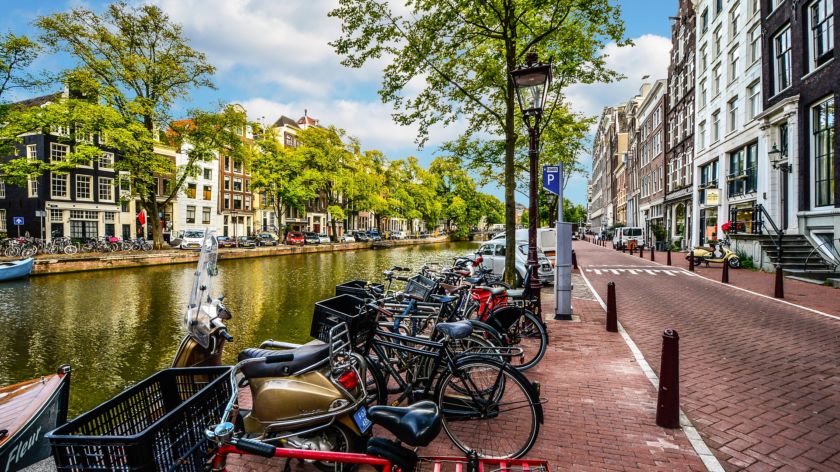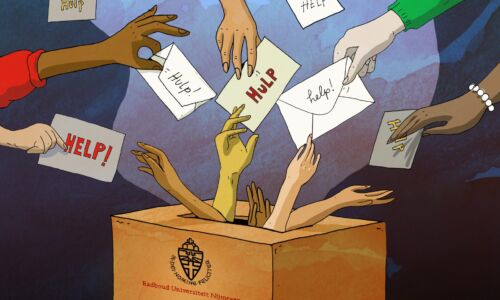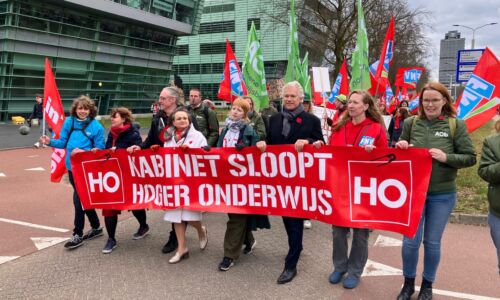Higher educated migrants feel less at home in Netherlands due to social exclusion
-
 Amsterdam. Photo: Pixabay
Amsterdam. Photo: Pixabay
Highly educated migrants with a well-paying job are sometimes more disappointed with life in the Netherlands than people with a lower socio-economic status. PhD candidate Nella Geurts discovered that feelings of social exclusion are one of the reasons for this ‘integration paradox.’
One of the Turkish migrants that Nella Geurts (28) spoke with for her PhD research told her how his new boss showed him around the office. In particular, the boss pointed out the special prayer space; the implicit message being “this is convenient for you, because you must be a Muslim”. Geurts: ‘But he wasn’t religious at all, and this experience made him feel less accepted. Apparently, his new boss had made all manner of incorrect stereotypical assumptions about him.’
It’s these subtle forms of social exclusion that sometimes make new highly educated migrants feel less welcome. That is what Geurts concludes in her dissertation, which she will be defending today. ‘The cause of that integration paradox was not yet known’, she says.
Integration paradox?
‘That is the phenomenon that migrants with a high socio-economic position – such as those who are highly educated or have a high-paying job – don’t feel at home here as quickly as migrants with lower positions. Theoretically you would expect the opposite: if your life in your new country is on track, it’s easier to integrate further.’
In your dissertation you state that experiences of social exclusion are a possible cause for this. Can you elaborate?
‘I have analysed surveys of migrants from various countries of origin and have performed in-depth interviews with 32 highly educated migrants from Turkey. These are people who did not want to live there anymore because they disagreed with the political and economical situation, for example. Many of them came here with the idea of the Netherlands as a progressive, tolerant country. If you’re then approached in a stereotypical fashion – “you’re Turkish, so you must be Muslim”, for example – that is very disappointing. It’s not fun to see pictures on Instagram of company drinks that you weren’t invited to, because people assumed you would say no because of a religion you don’t adhere to.’
Isn’t that just being considerate to someone from a different culture?
‘I’m sure the intent was good. But it is important to be aware of how such comments can be perceived. You can easily fall into the trap of making assumptions and pigeonholing someone. What migrants need, or so they’ve told me, is that they are asked whether or not they want to go to company drinks and the like. That makes them feel like they belong.’
Why do lower educated migrants experience this problem less?
‘They often work in a different context, where they have less contact with people from a non-migrant background. That reduces the chance of negative experiences. We know from previous research that they also often have lower expectations of life and the economic possibilities here. That kind of attitude means you’re disappointed less quickly.’
Was all of this still unknown?
‘No; earlier research showed discrimination of ethnic groups as a cause of the integration paradox. Highly educated migrants experience this as well, in the housing market for instance. But that does not have the same effect on this group of recent migrants and how at home they feel. They don’t consider themselves part of an ethnic group as often as migrants who came to the Netherlands in the previous century or the generation after that. That is why new migrants tend not to apply discrimination towards Dutch people of Turkish heritage to themselves.’
‘For some migrants, national identities are not important’
‘Global citizenship is another possible cause of the paradox. For some migrants, national identities are not important. They feel as though they’re part of a global community, and that makes them feel less at home in the Netherlands. This group is often in an international environment, both at work and in the private sphere. “I only notice I’m in the Netherlands when I’m in the Albert Heijn”, according to one. They also often prefer speaking English to speaking Dutch, because they feel they are taken more seriously.’
Why is it important to gain insights into the integration paradox?
‘If people become disillusioned after arriving here, that can impact their wellbeing and their performance. They will start working less or putting less effort in. They are also more likely to leave for major cities like London or Paris. That is bad for the knowledge-based economy and the investments that the Netherlands make to attract these highly educated migrants.’
The government can implement more specific policies and involve non-migrants as well. In that sense it is important to realise that just fighting discrimination is not enough to make these migrants feel at home. There are a lot more forms of exclusion than being yelled at in the street.’




